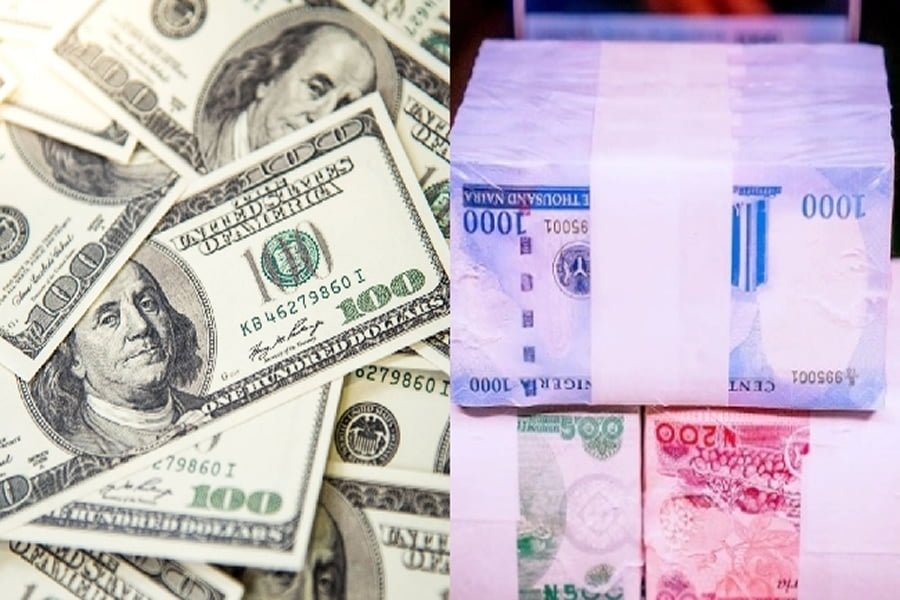It is certainly a tough time for parallel market dealers now groaning over the Central Bank of Nigeria (CBN)’s decision to abolish segments of the official FX market to the Investors and Exporters’ (I&E) window, where the “willing buyer and willing seller” was re-introduced.
The development, according to parallel market dealers who spoke to Daily Sun at the weekend, is having a knock-down effect on their businesses and may likely lead to them to close shop.
This is coming from the recent series of reform measures implemented by the President Bola Ahmed Tinubu’s administration since its inauguration on May 29, 2023. Tinubu at his inaugural speech, declared that fuel subsidy is gone and that there was no provision for it in the budget he inherited from his predecessor, Muhammadu Buhari.
He also stated that his administration will be targeting a higher GDP growth, create jobs, work towards a unified exchange rate and ensure that investors and foreign businesses repatriate their hard earned dividends and profits home.
On the back of those words and the CBN’s adjustment, the official rate rose from N463.38/$ to N632.77/$ and has since averaged N669.0/$. Although, data from the FMDQ’s website revealed that the Naira depreciated further by 13.9 per cent to N770.17/$ at the I&E window with total turnover declining by 31.0 per cent to $513.88 million, with trades consummated within the N446.32 – N815.00/$ band.
The CBN’s decision to float the currency has been hailed by the organised private sector and economists who said the move would unify the country’s multiple exchange rate and bring sanity to the FX market.
However, the move has apparently not gone down well with parallel market dealers across the country who feel that a collaboration between the Bureau de change operators (BDCs) and the apex bank would have led to the promotion of exchange rate stability in the economy. They also urged the Federal government to reconsider and set up discussion with market stakeholders. Alhaji Shenkafi Yinus, a dealer at Marina axis said, “I think that the Tinubu-led government acted too swiftly as regards the exchange rate. They felt it would be the same as the parallel market rate but it is not possible. There are people who travel abroad, send money to their loved ones and some of these banks sell to us and after they do that, we make our own gains.
We are still in business but it is not the same as what we used to make as profit then”.
Another dealer at Ajah who gave his name as Ibrahim said, “For example, if a traveler wants to buy $10 million, he cannot go to the bank, he has to come to us. I feel this is not certainly not the best way to handle situations like this. You have to carry stakeholders along so that this situation can turn out to be happy for everyone. There are some students who could not get Form A because the process was tedious and when they approach us, we sell and make profit, that profit is used to sustain our survival as we have to remain in business to take care of our homes”.
Reacting, analysts in an emailed response to Daily Sun, said that the effect of unifying the exchange rate is expected to be mild given that access to official rates hitherto has been exclusive to specific needs, while low liquidity depth and demand management policies forced many buyers to the parallel market.
“That said, the risk of speculation escalating rate on the parallel market remains high especially if liquidity (40.8 per cent up based on 7-day average turnover pre and post devaluation date) does not adequately improve in the I&E window”, Afrinvest said.
For his part, an ex-Chief economist at Zenith Bank, Marcel Okeke, while assessing the negative impact of the policy said ”what is already unfolding now even suggests that the Naira is losing its basic role as a store of value.”
Explaining how the Naira is losing its role as a store of value, Okeke said that unwittingly, the dollarization of the Nigerian economy is being fast-tracked as economic agents would now prefer to save (or denominate) their assets in dollars for more stability in the value of their savings and assets.
“In view of all these, even exporters of non-oil items will be discouraged from repatriating their earnings going forward. This will lead to further scarcity of FX and collapse of the Naira in the face of sustained excess demand.
Remember that over the years, Nigeria has been an import-dependent economy, and this cannot change overnight. High taste and preference for foreign goods and services, ostentatious lifestyle, importation of machineries and raw materials, among others, have been the features of Nigeria from time immemorial. So, the staccato approach of the government in dismantling existing export incentives and other initiatives, calls for some caution”, he explained.
Sunnews

